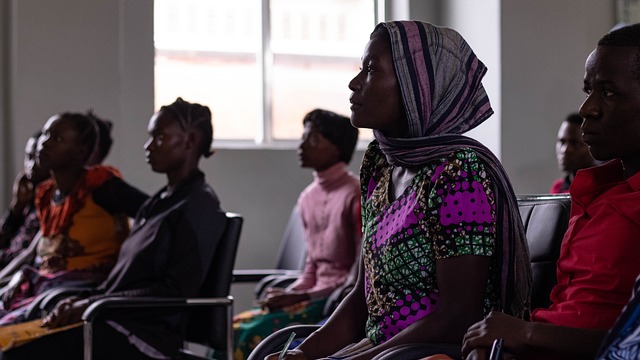Event Planning for Local Businesses thrives on understanding community needs and interests, achieved through resident engagement via surveys, focus groups, and interviews. By incorporating local priorities like cultural diversity and sustainability into event themes, organizers foster a sense of belonging and encourage diverse participation. Businesses actively contribute by providing resources, sponsoring events, leading to collaborative efforts that empower communities and strengthen local environments. Before outreach, direct feedback from potential attendees through these methods is crucial for creating well-attended, impactful events aligned with community needs.
“Unleash the power of community engagement through strategic outreach events! This comprehensive guide is designed to help local businesses navigate the art of connecting with their target audience. By delving into identifying community needs, planning engaging activities, and implementing effective logistics, you’ll revolutionize event strategies.
From understanding demographics and cultural interests to creating inclusive spaces and promoting via diverse channels, this article covers it all. Discover how to transform your events into vibrant experiences that resonate with attendees, fostering a strong local community spirit.”
- Identifying Community Needs and Interests
- – Understanding the local landscape: demographics, cultural events, and community challenges.
- – Conducting surveys, focus groups, and interviews to gather input from potential attendees.
Identifying Community Needs and Interests

Identifying Community Needs and Interests is a crucial step in successful Event Planning for Local Businesses. By engaging with residents, business owners, and community leaders, organizers can gain valuable insights into what matters most to their neighbors. This may include understanding local concerns, celebrating cultural diversity, or addressing issues like healthcare access and environmental sustainability. Incorporating these needs into event themes and activities fosters a sense of belonging and encourages participation from diverse segments of the community.
Effective outreach methods such as surveys, focus groups, and one-on-one interviews allow for direct communication with community members. Local businesses play a vital role in this process by providing resources, offering sponsorship opportunities, and spreading awareness about upcoming events. Through collaborative efforts, event planners can create gatherings that not only entertain but also empower the community, fostering a stronger, more connected local environment.
– Understanding the local landscape: demographics, cultural events, and community challenges.

Understanding the local landscape is a crucial step in successful event planning for local businesses. By delving into demographics, cultural events, and community challenges, organizers can tailor activities that resonate with the target audience. For instance, a bustling metropolis might require vibrant, interactive events to engage a diverse population, while smaller communities may appreciate more intimate gatherings focused on fostering connections and addressing local needs.
Event planners should consider the unique tapestry of each neighborhood, acknowledging its historical and cultural roots. This involves recognizing both the strengths and weaknesses within the community, such as high unemployment rates or a lack of access to quality resources. Incorporating these insights allows for the creation of events that not only entertain but also empower, enhance, and transform local landscapes by addressing pressing challenges in meaningful ways.
– Conducting surveys, focus groups, and interviews to gather input from potential attendees.

Before designing and organizing community outreach events, it’s crucial to gather valuable insights from potential attendees through various methods like surveys, focus groups, and interviews. These tools enable Event Planning for Local Businesses by providing direct feedback on participants’ preferences, expectations, and barriers to attendance. By delving into these conversations, event organizers can tailor their initiatives to align with the community’s needs and interests.
Through surveys, businesses can quantitatively analyze trends and patterns in response rates, while focus groups offer qualitative depth by exploring motivations and perceptions. Interviews allow for personalized insights, uncovering unique perspectives that might be missed in larger-scale data collection methods. This comprehensive approach ensures that events are not only well-attended but also impactful, fostering meaningful engagement between local businesses and their target audiences.
By delving into the local landscape and actively listening to community needs through surveys, focus groups, and interviews, event planners can successfully align community outreach events with residents’ interests. This data-driven approach ensures that planning for these events benefits both local businesses and the broader community, fostering stronger connections and a vibrant, inclusive atmosphere. For businesses looking to engage their target audiences, understanding demographic trends and cultural events is key to crafting successful marketing strategies, making event planning an invaluable tool in the local business landscape.
